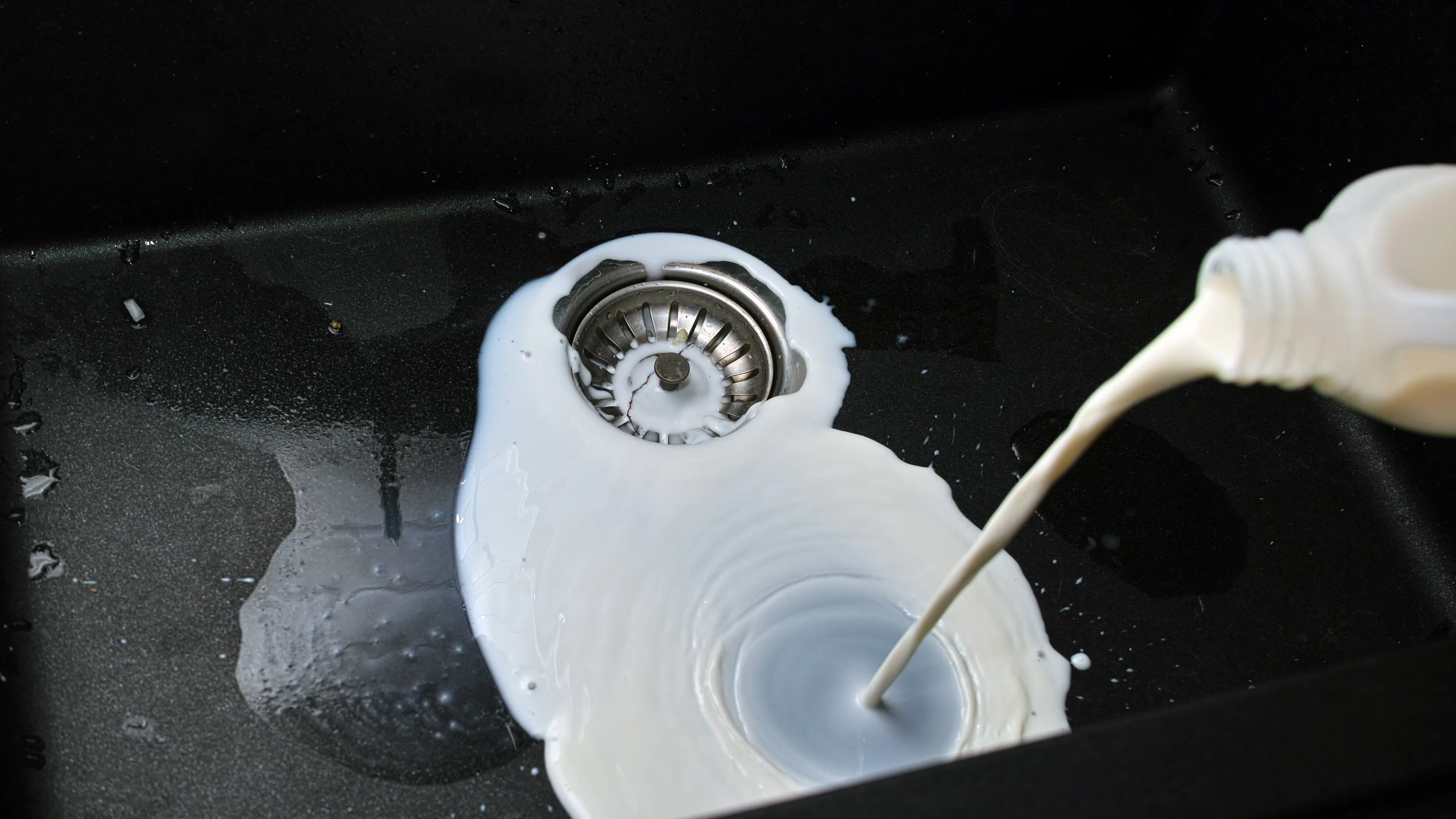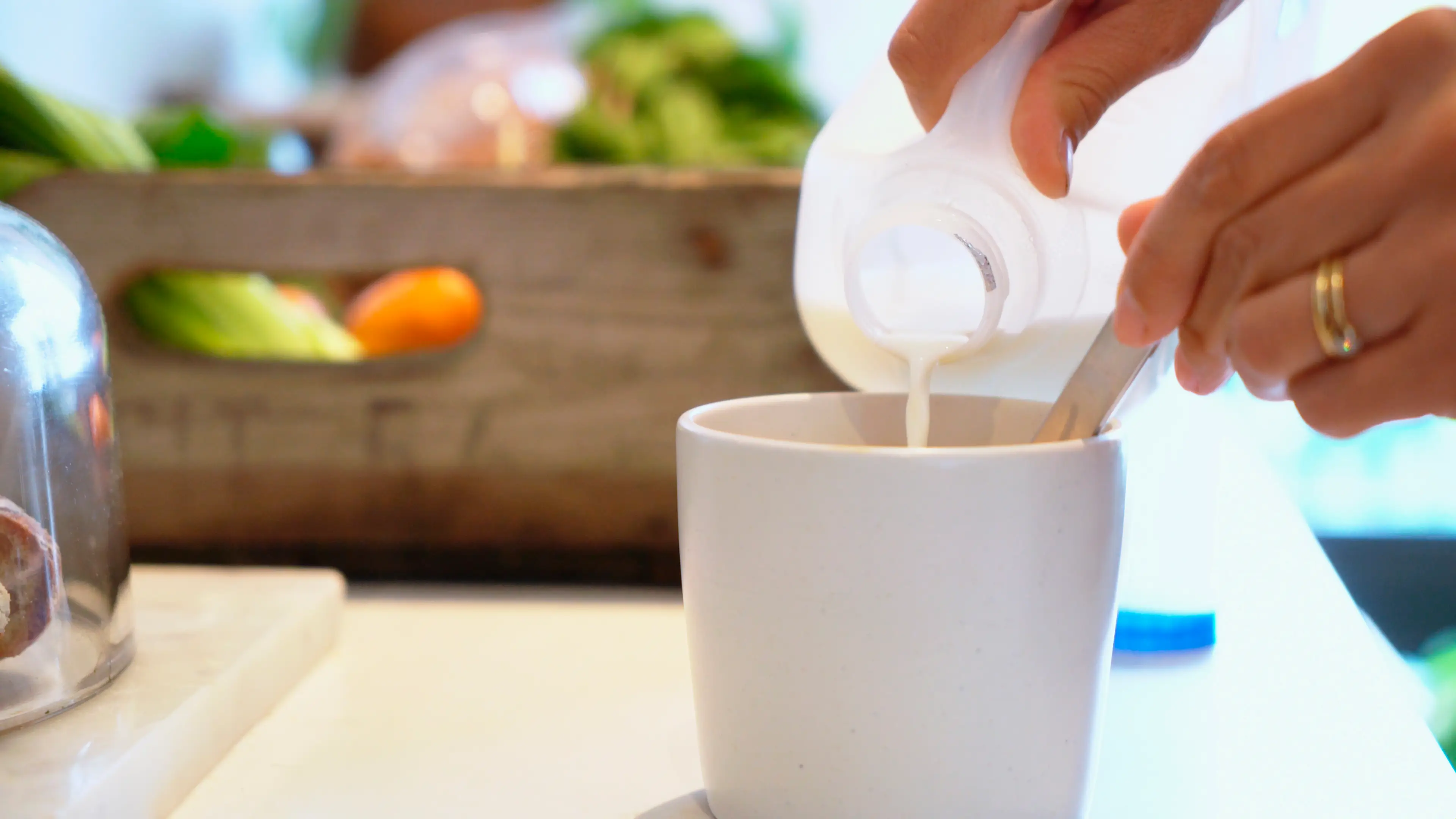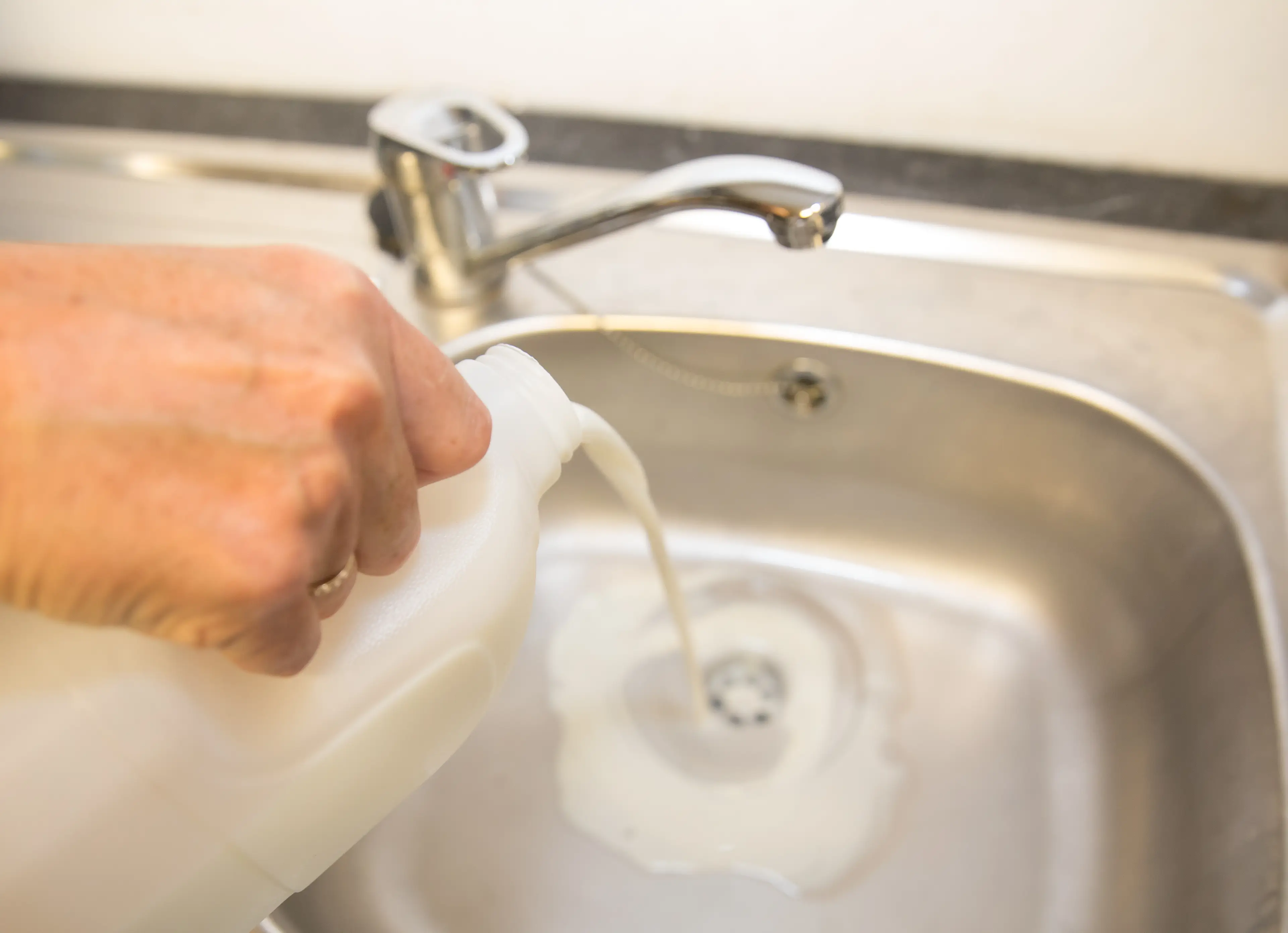
There's nothing worse than going to make a tea or coffee and realising the milk has gone off - but whatever you do, don't pour it down the sink.
Experts at water companies have issued a plea ahead of the festive season not to pour milk, fat, cooking oil or anything else leftover down the drain.
It can cause serious problems for both you and your neighbours.
You might think it's the right thing freeing up the bins and less to be collected, and trying to avoid bad odours (as, let's be honest, rotten milk absolutely stinks).
Advert
Research by Thames Water found that, of those surveyed, 61 per cent confessed to pouring milk down the sink.
Some 33 per cent poured meat juices down the kitchen sink, while 27 per cent poured sunflower, olive, rapeseed, vegetable and canola oils down the drains.

A rotten issue
Other water companies are also echoing this concern, with a spokesperson for Scottish Water acknowledging: "We know that disposing of old milk can be a bit of a challenge. Pouring it down the kitchen sink might seem like the easiest option, but it can cause serious problems for your drains and the environment.
"The fats in milk can lead to blockages in your pipes, which can be costly to fix and harmful to our waterways."
They added: "Pouring milk down the sink is a big no-no. The fats and proteins in milk can solidify and stick to the walls of your pipes, leading to blockages.
"These blockages can cause your drains to back up, resulting in unpleasant smells and potentially expensive plumbing repairs."
However, it's not just your home and the surrounding area which can be impacted: "Moreover, when milk enters the sewage system, it can deplete oxygen levels in the water, harming aquatic life."
Nobody wants that!

Tess Fayers is the director of wastewater and bioresources at Thames Water.
She added it's not just milk to be mindful of: “Our research shows that everyday habits like rinsing leftover food, oil and fatty liquids down the sink or flushing wipes can unintentionally lead to blocked pipes.
"Having to shell out on emergency plumber fees over the Christmas period won't be fun.
“The last thing we want is for the festive season to be ruined by blocked drains. There are some simple changes we can all make to help protect our homes and keep sewers flowing."
So how can you get rid of it?
Fayers advises: “Always scrape fats and oils into the bin before washing up, avoid pouring drinks like hot chocolate or tea down the drain, and avoid flushing anything that isn’t pee, poo or toilet paper, even if the packaging says otherwise.
Scottish Water suggested the following methods:
- Compost - Mix the spare milk with other compost materials to neutralise any unpleasant smells
- Garden fertiliser - If you've got a green space, diluted milk can act as a natural fertiliser for your plants
- Put it in the bin - Pour the excess milk into a bottle or sealable container, and throw it away in the bin
- Freeze it - if the milk is about to go off and you won't use it in time, freeze it to use in baking and soups and sauces.